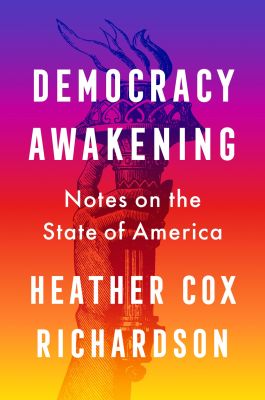In the midst of the impeachment crisis of 2019, Heather Cox Richardson launched a daily Facebook essay providing the historical background of the daily torrent of news. The essays soon turned into a newsletter and, spread by word of mouth, its readership ballooned to more than 2 million dedicated readers who rely on its plainspoken and informed take on the present and past in America. In Democracy Awakening, Richardson crafts a compelling and original narrative, explaining how, over the decades, a small group of wealthy people have made war on American ideals. By weaponizing language and promoting false history they have led us into authoritarianism - creating a disaffected population and then promising to recreate an imagined past where those people could feel important again. She argues that taking our country back starts by remembering the elements of the nation's true history that marginalized Americans have always upheld. Their dedication to the principles on which this nation was founded has enabled us to renew and expand our commitment to democracy in the past. Richardson sees this history as a roadmap for the nation's future. Richardson's unique talent is to wrangle our giant, meandering, confusing news feed into a coherent story that singles out what we should pay attention to, what the historical roots and precedents are, and what possible paths lie ahead. Writing in her trademark calm prose, she manages to be both realistic and optimistic about the future of democracy. Richardson's easy command of history allows her to pivot effortlessly from the Founders to the abolitionists to Reconstruction to Goldwater to Mitch McConnell, highlighting the political legacies of the New Deal, the lingering fears of socialism, the death of the liberal consensus and birth of 'movement conservatism.' There are many books that tell us what has happened over the last five years. Democracy Awakening explains how we got to this perilous point, what our history really tells us about ourselves, and what the future of democracy can be.

